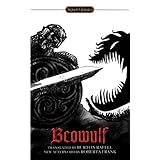
I was interested in reading this series because I have read the Wheel of Time series (so far) and was really curious about why Robert Jordan chose this particular author to finish his series. In case you didn't know, Robert Jordan died before he could finish the Wheel of Time series and basically asked Brandon Sanderson if he would write the final books in his stead. Keep in mind, this was a series he started writing in 1977 and has about 1.8 billion characters (I wish this was an exaggeration). Pretty huge undertaking, if you ask me. Plus, there is a certain level of trust required to have someone finish the thing you've been working on your whole life. However, after having read the Mistborn series I can better understand why Brandon Sanderson was selected.
The events in
Mistborn are seen through the eyes of 16 year old Vin (sometimes the narrator does change, but for the most part it is Vin). She's a thief that has grown up in a cutthroat underground. Her brother initially got her involved in this lifestyle. She has a very complicated relationship with him. He saved her from their mentally unstable mother, who killed their younger sister, and has kept her alive; however, he also occasionally beat her and eventually abandoned her. Understandably, Vin has huge trust and abandonment issues. On the bright side, we learn that Vin is also very crafty and a skilled thief. At least she has something going for her. Her best attribute, however, is her Luck. Her thieving crew leader Camon has discovered that whenever she's around the crew's jobs tend to go well. She seems to have an innate ability to get people to react how she wants them to. This is very handy as the crew is often trying to scam people.
Unfortunately, Vin's Luck has garnered the attention of an obligator. Vin lives in the Final Empire, governed by an emperor god known as the Lord Ruler. The Lord Ruler has minions that make sure everything goes as he wants it to. The obligators are his human underlings. They act as priests of the Lord Ruler's religion and bureaucrats. Inquisitors serve as the muscle of the government. They are impaled with various metal spikes that imbue them with various powers. They are considered unkillable by most people. Not many of them exist. Lastly, the Lord Ruler controls a race called the koloss. They serve as a part of his vast armies. They're grotesque blue-skinned creatures ranging in size from 5 feet tall to 13 feet tall. They've been made for the sole purpose of killing. Though they are not anywhere near as deadly as an Inquisitor they are still rather formidable because of their strength and size. Getting back to Vin, the obligator sends an Inquisitor after her because of her Luck.
Fortunately, Kelsier is also interested in Vin because of her Luck. He and one of his friends distract the Inquisitor enough so that Vin can escape, unbeknownst to her. However, in the time that Kelsier has been distracting the Inquisitor, Camon has decided to beat Vin. Just when things are about to get really uncomfortable for Vin, Kelsier shows up again to save her. He removes her from her thief crew and asks her to join his. She obviously agrees. Later, Kelsier explains to Vin that her Luck is really the mystical power of Allomancy. Allomancy is basically magic derived from metals. When Vin and Kelsier consume specific metals they can use them to do certain things. There are 8 basic metals and 2 special metals:
1. Iron - Pulls on nearby sources of metal
2. Steel - Pushes on nearby sources of metal
3. Tin - Increases human senses
4. Pewter - Increase physical abilities
5. Brass - Soothes emotions
6. Zinc - Riots emotions
7. Copper - Hides the use of Allomancy
8. Brass - Allows one to sense Allomancy
9. Gold - Allows one to see into one's past
10. Atium - Allows one to see slightly into the future
People that can use all of the metals are called Mistborn. People that can only use one of the metals are called Mistings.
The reason the Kelsier has acquired Vin is that he is gathering a crew for a very important purpose. He plans to overthrow the Lord Ruler. He wants to do this on behalf of the skaa people. The skaa people are the slaves of the Final Empire. They are used by the nobility to work in factories, mills, fields, etc. They are abused and killed indiscriminately. Kelsier also has a more personal reason for wanting to unseat the Lord Ruler. Years before, Kelsier and his wife were caught breaking into the Lord Ruler's palace. They were sent to work in the Pits of Hathsin. It was universally known that no one ever lived through this. Kelsier's wife did not. This caused Kelsier to "Snap". Mistborns are not born with their powers, ironically. They have to experience some traumatic event that causes them to Snap and gain their powers. Kelsier's newfound abilities allowed him to escape the Pits of Hathsin. Because of this he has become known as the Survivor. He plans not just to overthrow the Lord Ruler, but to kill him as well. He claims to have found an eleventh metal that will give him the power to do so.
Mistborn follows the crew's activities throughout the year that they've given themselves to accomplish this rather large task. Vin is in charge of impersonating a noblewoman and acting as a spy among the nobility. Sazed is charged with training her in the proper ways of court manners and customs. Sazed is a Keeper of the Terris people. The Terris people are highly valued by the nobility because they are considered perfect servants; however, they have more skills than the nobility knows. Like humans with Allomancy, Terrismen have Feruchemy. Feruchemy allows Terrismen to store up certain attributes in different metals which they can use at later times. Feruchemy follows along similar lines as Allomancy:
1. Iron - Stores physical weight
2. Steel - Stores physical speed
3. Tin - Stores the ability to use the five sense
4. Pewter - Stores physical strength
5. Brass - Stores warmth
6. Zinc - Stores mental speed
7. Copper - Stores memories
8. Bronze - Stores wakefulness
9. Gold - Stores health
10. Atium - Stores age
The Lord Ruler has attempted to remove the power of Feruchemy from the Terris people through a program of selective breeding. He has been unsuccessful so far due to the activities of the leaders of the Terris people called the Synod. Terrismen with the ability to use Feruchemy are hidden from the Lord Ruler. They are called Keepers because they are charged with keeping certain knowledge alive through the use of copper. Each Keeper has a certain specialty. Sazed's specialty is religion. He retains knowledge of all the religions that were present before the Lord Ruler eradicated them.
Other members of Kelsier's crew include:
1. Dockson - Kelsier's righthand man. He is a gifted bureaucrat. He is charged with overseeing the crew's finances and making sure everyone gets whatever they need.
2. Breeze - He is a brass Misting. He is in charge of recruiting for the skaa army that Kelsier intends to build.
3. Yeden - He is in charge of the skaa rebellion currently. He ostensibly hired Kelsier's crew to overthrow the Lord Ruler.
4. Ham - He is a pewter Misting. He is in charge of training the skaa army.
5. Clubs - He is a copper Misting. He is in charge of hiding the crew's Allomantic activities.
6. Lord Renoux - His real identity is known only to Kelsier. He was hired to impersonate the real Lord Renoux in order to use his business as a front for the purchases of the skaa rebellion and as a method of getting a spy among the nobility. Vin is acting as his niece Vallette.
7. Lestibournes (aka Spook) - He is Clubs' nephew and a tin Misting. He helps by serving on the watch to keep the crew safe.
After reading the whole
Mistborn series I can understand some of the reasons Robert Jordan chose Brandon Sanderson to continue his legacy. Sanderson is adept at making seemingly minor details of the first book important later in the series. His characters are also very complex and sometimes funny. He also has a very good grasp on how religion and politics work. His system of magic was also thoroughly thought out. In fact, it reminded me bizarrely of physics sometimes. All in all, it was a pretty good read. I'd recommend it to people who enjoyed other fantasy novels.
 The final scene of Shakespeare's Cymbeline is, like the play itself, a winking mess. It resembles the third act of a sitcom where all hoaxes and hijinks and disguises are finally revealed, except amplified to absurdity: Fidele is not dead, in fact, he is not Fidele but Imogen, the daughter of King Cymbeline, and the kindly mountaineers she befriended are not Polydor and Cadwal but her long-lost brothers Guiderius and Arviragus. Imogen has been faithful to her husband Posthumus--who, by the way, is not dead either, as she thought--and not, as he believed, seduced by the unscrupulous Iachimo. I have left out several things Brent might call spoilers.
The final scene of Shakespeare's Cymbeline is, like the play itself, a winking mess. It resembles the third act of a sitcom where all hoaxes and hijinks and disguises are finally revealed, except amplified to absurdity: Fidele is not dead, in fact, he is not Fidele but Imogen, the daughter of King Cymbeline, and the kindly mountaineers she befriended are not Polydor and Cadwal but her long-lost brothers Guiderius and Arviragus. Imogen has been faithful to her husband Posthumus--who, by the way, is not dead either, as she thought--and not, as he believed, seduced by the unscrupulous Iachimo. I have left out several things Brent might call spoilers.

















